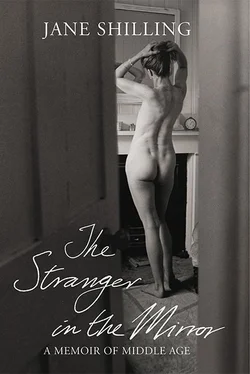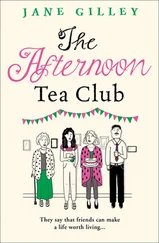Embedded within the fantasy confection that is Steinem’s take on old womanhood as second girlitude there is this much of truth: that if the old and the young, the pre- and post-fertile, have a special understanding, it is because their perspectives on the world are the mirror image one of the other. The twenty-first-century vogue for pressing very small children into formal education, and encouraging the old to beguile post-retirement boredom and loneliness with constant activity, has meant a blurring of the contrast in texture between the lightness at either end of life and the heavy duties of the middle. But it is still just true that the old and the young have more time to remark the strangeness of the world.
If the limits of your world are small and the time available to examine it either infinite or almost run out, its particularity is bound to engage your close attention. If you have never seen a bee, a marigold, a fire engine before, these things are astonishing, as they are if you are conscious that not much time is left in which to admire them.
‘Sir,’ wrote Colette’s mother, Sido, aged 77, to her daughter’s second husband, Henri de Jouvenal. ‘You ask me to come and spend a week with you, which means I would be near my daughter, whom I adore… All the same I’m not going to accept your kind invitation. The reason is that my pink cactus is probably going to flower… I’m told that in our climate it flowers only once every four years. Now, I am already a very old woman and if I went away when my pink cactus is about to flower, I am certain I shouldn’t see it in flower again…’
At 17 I am untroubled by a sense of mortality. Infinite quantities of time stretch out into the distance ahead of me. So much of it that its unendingness seems almost boring, like the very beginning of the school holidays with the whole interminable summer ahead. No need for me to mourn the falling of the cherry blossom, nor to see the corn vanishing beneath the scything blades of the combine harvester and think of the blades sweeping away yet another of my diminishing store of years.
All the same, I feel a sense of something passing. It is my childhood. I am no longer a very little girl. My time of waiting in astonishment for a pink flower to open is almost over. By the time it comes again, I shall be an old woman. For now, everything is changing fast.
This autumn I shall sit the Oxford entrance examination, and pass it. By this time next summer I shall have left home, having become an intolerable nuisance to my exasperated parents who predict (correctly, as it turns out, though their prediction doesn’t come true for another decade and a half) that I will end up an Unmarried Mother. By the autumn, I shall no longer be standing on tiptoe to peer over the garden fence at the distant hills and villages beyond, but out there, exploring the approaches to the life of busyness and preoccupation, work and love and sex and child-rearing that will keep me occupied for three decades before it all suddenly changes again.
This change is what is happening to my mother as we sit in the garden podding peas. I don’t realise it, because I am much too preoccupied with my own metamorphosis, and even if I did, I shouldn’t care to think about it: my own awkward, struggling, reluctant emergence from the safe egg of childhood makes me an intolerant spectator of anyone else’s struggle. Graceless myself, I am sharply critical of my mother’s lack of physical grace.
There is a word I have come across in my French reading, which seems to express more exactly the quality of my life at the moment than any approximately equivalent English term. The word is flou , meaning loose, fluid, vague, hazy, mutable, blurred. As I traverse the debatable land that stretches between childhood and womanhood, I can feel that my mother has embarked on an equivalent journey, from the fertility that I have just arrived at, to whatever lies beyond. I sense an uncertainty, a tentative searching for who she is, and who she might become, and I really don’t want to know. Between us, we are bracketing what Gloria Steinem called the ‘long familiar plateau’ of womanhood and each of us, I think, is impatient with the other’s reluctance to make the leap into the future.
The cherry blossom has come and gone thirty times since my grandmother, my mother and I sat together in the garden, talking about age. My grandmother is dead, buried somewhere in the village churchyard, her grave, as far as I know, unmarked and unvisited. My mother is the old lady now, and I the middle-aged woman, and we don’t sit together in the garden with my daughter, shelling peas, for I interrupted the tidal ebb and flow of female experience across the generations by having an only son. And besides, the impatience that my mother and I felt for one another when I was adolescent and she perimenopausal hardened eventually into estrangement, so that I breasted those risky adventures of adult female life, childbirth and the end of fertility, without a guide. Not alone, exactly, but in the company of friends as baffled and uncertain as I.
For twenty years and more we were all so busy – building our careers, having our babies, growing into ourselves, dodging between work and motherhood like a fielder beneath a relentless series of tumbling balls, hands spread to catch whatever crisis came curving towards us out of the air – so intent on surviving to the next day, and the next, and the one after that, that the very idea of a life that is flou , of vagueness or mutability, of an absence of the rigid shell of duty and demand that work and family imperceptibly encrust upon the character, became a fugitive memory, as hard to recapture as a dream at the moment of waking. As easy to imagine being a circus acrobat, a soldier on the field of battle, an airline pilot seated in front of a bank of winking lights and dials, carving cloudy trails across the sky, as to grasp again the vanished languor of the years between childhood and womanhood.
Until one day in the mid-forties, it comes again: that vague stirring within the body of something about to happen, of cells on the change, of an imminent, catastrophic transformation from one state to another; of leaving behind an accustomed state which, if not precisely comfortable (all that dodging about, all those hard-flung balls, barely fielded, some of them and others ruinously dropped), had at least the virtue of familiarity. And more virtue than that, when you come to think of it. For the intimation of change brings with it a powerful nostalgia.
While I am sitting at my desk among a litter of notebooks and pens, passing the weed-sown gasworks on the upper deck of the bus, grappling the laden supermarket trolley around the tricky chicane of Tinned Vegetables and Foods from Other Lands beneath the arctic blast of the air conditioning, memories flash, vivid as hauntings. Here, for the space of a fraction of a second, I am 18 again, leaning out of a great sash window of a room on the first floor of a quadrangle of honey stone. Behind me a tea party is going on – has been going on for some time, for it began in the late afternoon and it is evening now; the gold light tarnishing, the shadows lengthening, the sky darkening from limpid eggshell blue to lavender. There are bed-sheets on the floor by way of tablecloths; the brown liquid in the teapots is not tea but whisky, the teacups clatter, the voices gabble and above them rises the crystalline soprano of Elisabeth Schwarzkopf, singing Richard Strauss’s Four Last Songs .
I have not heard Strauss before. My musical education has consisted of ladylike tinklings among the easier piano sonatas of Mozart and Clementi. Twice a year my school has combined with the matching boys’ school down the road to render, in a frenzy of adolescent yearning, performances of the light operas of Gilbert and Sullivan (in the summer term) and choral masses at Easter (we turn in a sprightly Vivaldi Gloria , but our St Matthew Passion is distinctly ragged). The terrible melancholy and compromised harmonies of the Four Last Songs are disturbing – as is the presence, at the other side of the sash window, of the undergraduate owner of the rooms, the teapots, the whisky, the sheets and the record of the Four Last Songs: a balding, beak-nosed, 20-year-old mathematician with an intractable stammer.
Читать дальше












